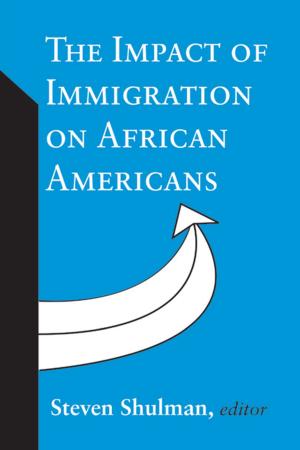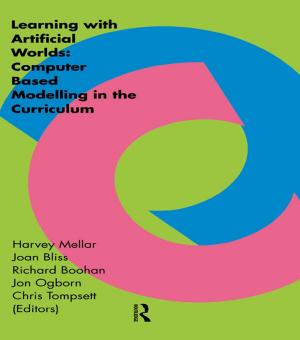Detox Your Writing
Strategies for doctoral researchers
Nonfiction, Reference & Language, Education & Teaching, Reference, Higher Education| Author: | Pat Thomson, Barbara Kamler | ISBN: | 9781317283508 |
| Publisher: | Taylor and Francis | Publication: | February 26, 2016 |
| Imprint: | Routledge | Language: | English |
| Author: | Pat Thomson, Barbara Kamler |
| ISBN: | 9781317283508 |
| Publisher: | Taylor and Francis |
| Publication: | February 26, 2016 |
| Imprint: | Routledge |
| Language: | English |
There are a number of books which aim to help doctoral researchers write the PhD. This book offers something different - the scholarly detox. This is not a faddish alternative, it’s not extreme. It’s a moderate approach intended to gently interrupt old ways of doing things and establish new habits and orientations to writing the PhD.
The book addresses the problems that most doctoral researchers experience at some time during their candidature – being unclear about their contribution, feeling lost in the literature, feeling like an imposter, not knowing how to write with authority, wanting to edit rather than revise. Each chapter addresses a problem, suggests an alternative framing, and then offers strategies designed to address the real issue.
Detox Your Writing is intended to be a companionable work book – something doctoral researchers can use throughout their doctorate to ask questions about taken-for-granted ways of writing and reading, and to develop new and effective approaches.
The authors’ distinctive approach to doctoral writing mobilises the rich traditions of linguistic scholarship, as well as the literatures on scholarly identity formation. Building on years of expertise they place their emphasis both on tools and techniques as well as the discursive practices of becoming a scholar.
The authors provide a wide repertoire of strategies that doctoral researchers can select from, rather than a linear lock step progression through a set of exercises. The book is a toolkit but a far from prescriptive one. It shows that there are many routes to developing a personal academic voice and identity and a well-crafted text. With points for reflection alongside examples from a broad range of disciplines, the book offers thinking tools, writing tools, linguistic tools, and reading tools which are relevant to all stages of doctoral research.
This practical text can be used in all university doctoral training and composition and writing courses. However, it is not a dry how-to-do–it manual that ignores debates or focuses solely on the mechanical at the expense of the lived experience of doctoral research. It provides a practical, theorised, real-world, guide to postgraduate writing.
There are a number of books which aim to help doctoral researchers write the PhD. This book offers something different - the scholarly detox. This is not a faddish alternative, it’s not extreme. It’s a moderate approach intended to gently interrupt old ways of doing things and establish new habits and orientations to writing the PhD.
The book addresses the problems that most doctoral researchers experience at some time during their candidature – being unclear about their contribution, feeling lost in the literature, feeling like an imposter, not knowing how to write with authority, wanting to edit rather than revise. Each chapter addresses a problem, suggests an alternative framing, and then offers strategies designed to address the real issue.
Detox Your Writing is intended to be a companionable work book – something doctoral researchers can use throughout their doctorate to ask questions about taken-for-granted ways of writing and reading, and to develop new and effective approaches.
The authors’ distinctive approach to doctoral writing mobilises the rich traditions of linguistic scholarship, as well as the literatures on scholarly identity formation. Building on years of expertise they place their emphasis both on tools and techniques as well as the discursive practices of becoming a scholar.
The authors provide a wide repertoire of strategies that doctoral researchers can select from, rather than a linear lock step progression through a set of exercises. The book is a toolkit but a far from prescriptive one. It shows that there are many routes to developing a personal academic voice and identity and a well-crafted text. With points for reflection alongside examples from a broad range of disciplines, the book offers thinking tools, writing tools, linguistic tools, and reading tools which are relevant to all stages of doctoral research.
This practical text can be used in all university doctoral training and composition and writing courses. However, it is not a dry how-to-do–it manual that ignores debates or focuses solely on the mechanical at the expense of the lived experience of doctoral research. It provides a practical, theorised, real-world, guide to postgraduate writing.















